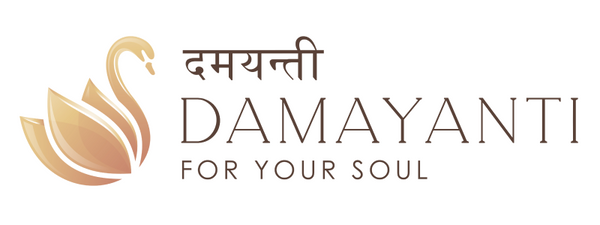No Road is Long with Good Company
Traditional Proverb
Satsanga is the Sanskrit word for ‘good company’. In the context of the soul path and spiritual journey, satsanga is the company of like-minded people who are intent on freedom and waking up to higher consciousness. Sat means ‘truth’ or ‘knowledge’, and sanga means ‘a gathering, a community, a coming together’. So satsanga literally means ‘a gathering of the wise, the truthful and the knowledgeable’.
People who are good company, are seekers of higher wisdom. They encourage their companions, are enthusiastic, and offer a helping hand when there is the occasional misstep.
Our teacher told us that it was almost impossible to act badly when we are in good company; and it was equally difficult to act well in bad company. Satsanga is therefore considered one of the most powerful forces in the universe.
There are a lot of stories about the incredible power of satsanga. Here is a delightful one adapted from 7 Steps to Freedom, my husband Gilbert Mane’s book on the journey to liberation.
Narada, a heavenly being devoted to Lord Vishnu, approached the Great God with a question.
“My Lord,” he said, “I have heard the wise extol the power and mystery of satsanga, good company. Please explain this to me.”
Lord Vishnu smiled at his devotee.
“This is a deep question and I cannot answer it myself.” Seeing Narada’s astonishment, Lord Vishnu continued, “But I think I know of someone who can help you. Go to the sacred plain of Kurukshetra and you will find a large tamarind tree. On a branch of that tree you will find a worm. Put your question to that worm.”
Narada, completely mystified, hurried to do his Lord’s bidding. He found the worm and greeted him politely.
“O Narada,” said the worm, “what an honour that you have come to visit me. What can I do for you?”
“O Worm,” said Narada, “I have a question. Please tell me what is the power of satsanga?”
On hearing the question, the worm shivered and shook and fell down dead!
Narada was shocked and quickly returned to heaven to report this extraordinary event to Lord Vishnu.
The Lord said: “This is indeed strange. Give me some time to think about it.”
A few weeks later, Vishnu summoned Narada and again told him to go to earth to ask his question. This time Vishnu told him of a beautiful parrot with colourful plumage.
“Ask this parrot,” said Vishnu, “perhaps he will be able to solve the mystery.”
Narada eagerly headed to earth and found the parrot sitting on the branch of a tree.
Narada and the parrot greeted each other politely.
“How wonderful that you, Narada, a saintly dweller in heaven have come to visit me!”
“I am sent by Lord Vishnu himself,” said Narada, “It is I who am honoured to be here. And I have come to ask a question.”
“What is your question?” said the parrot.
“Pray tell me, what is the power of satsanga, the good company of the wise?”
On hearing the question, the parrot also shivered and shook, and fell from his branch stone cold dead!
Narada was dismayed. He was sorry that his question also seemed to have caused the sudden death of the beautiful parrot.
He returned to heaven to report on this strange event. Vishnu, again, seemed puzzled and asked for time to think.
Eventually, some months later, he summoned Narada and told him to return to earth once more. This time he was to go to a farm near the plain of Kurukshetra and ask a newly born calf about the power of satsanga.
Narada, a little apprehensive this time, did as he was bidden. He soon found himself standing before the calf.
“Greetings Narada,” said the calf respectfully, “my happiness is complete since you, a great and wise sage have come to visit me.”
Narada bowed to the calf.
“I have come to ask you a question on the instructions of Lord Vishnu himself. Please, I beg you, tell me of the power of satsanga.”
On hearing these words the calf, like the worm and the parrot, shivered and shook and fell down dead!
Narada was appalled. A calf is a sacred animal to which no harm must be done. Narada felt he could not return to heaven until he had cleansed himself of sin. So, for several years he wandered the wide world serving the wise, comforting the grief stricken, teaching the inquisitive, and spreading the healing balm of devotion to Vishnu across the face of the earth.
Finally, he returned to heaven where Lord Vishnu himself bestowed the gift of forgiveness on him.
“Do you still wish to fathom the mystery of the power of satsanga?” asked Lord Vishnu.
“I do,” said Narada, “but I fear the question is a dangerous one.”
“Perhaps if we try just one last time,” said Lord Vishnu.
And he instructed Narada to go to earth to the palace of a righteous King and Queen. There he was to put his question to their son, the Crown Prince, who was but a boy of five years.
Narada protested: “My Lord, I am your humble devotee, but surely this is a mission fraught with peril. What if the question results in the death of the prince?”
Vishnu calmed Narada and encouraged him to make the journey. Obedient to the Great Preserver of the Universe, Narada soon arrived at the palace of the King and Queen.
They greeted him and set out food and drink for him. When Narada had partaken of their hospitality, they asked how they could be of service to him.
“What, O Great Sage,” they asked, “can we do for you? Why have you honoured our kingdom with your presence?”
Narada felt he should be completely open with this royal couple, and told them the whole story of his quest to discover the power of satsanga. He told of the sad fate of the worm, the parrot and the calf.
“Now Lord Vishnu has instructed me to come here and put the same question to your son the Crown Prince.”
The King and Queen were surprised. After all, their son was only five years old. But they didn’t hesitate.
“Everyone must pass to the other world,” they said. “But who can earn the privilege of going in obedience to the direct command of Lord Vishnu? Surely our son is greatly blessed whatever happens.”
So the boy was summoned.
When he entered the throne room and saw Narada, he ran and threw himself at his feet. With a look of supreme bliss, he said “At last, my Guru has returned to me. I have waited these five years to again sit at your feet!”
Narada was completely dumbfounded.
“O Prince,” he said, “I do not understand. We have never met. I have come here, as instructed by Lord Vishnu, to ask you about the power of satsanga.”
The boy laughed in complete delight. Pointing at Narada he said: “You are the power of satsanga!”
“Whatever can you mean?” cried Narada, even more perplexed.
“It is simple,” said the Prince. “Some years ago, I was born as a worm doomed to spend innumerable births as a lowly creature. Then you came along and just a few moments of your holy presence blessed me with a rebirth as a beautiful parrot. Then, wonder of wonders! You came to me again and, from the cooling breeze of just a few minutes in your company, I was able to obtain my next birth as a sacred calf. And, O Joy of Joys! You came a third time, and after just a few words from you, I was born as a prince with this righteous King and Queen as my father and mother. Here you are once more. My heart is bursting with delight!”
Now, at last, Narada, felt comprehension dawn! He finally understood the wonderful transformative power of satsanga.
This story is of course an allegory – tales of talking worms and parrots are not to be taken literally. The death of each creature is a symbol of us letting go of the things that hold us back in life. It tells of the power of good company to transform us from our ordinary condition to a state of higher wisdom. I can attest to the truth of this in my own life. Friends and companions had a profound effect on me in my own quest for understanding and knowledge.
In the story, the mere presence of a good person, devoted to truth and higher wisdom, in this case Narada, was enough to help someone on their spiritual journey. Narada had a burning question that arose from his spiritual enquiry. He went to a trustworthy source of wisdom and put that question to him. The spiritual teacher, in this case Lord Vishnu, rather than answer the question directly, sent him on a quest. The fruits of this quest gave Narada an understanding of the answer that mere words might not have conveyed.
Vishnu represents one form of good company: the loving, wise teacher who carefully guides the student to higher understanding.
Narada, the student, perplexed by an aspect of higher wisdom, engaged in focused and persistent enquiry, is another powerful form of satsanga. This is the good company that transformed the soul who journeyed from worm to prince.
So the practical tip is twofold. Seek out the company of those who, in the poet Rumi’s words “have become desirous of the Good”, those who are focused on attaining higher consciousness.
The second aspect is to be good company for others. Express your gratitude for the good you experience. Be aware of the needs of others and lend a helping hand. Make the effort to be awake, aware and attentive. When you are with friends, family and colleagues, focus on them, what they say, what they need. Being good company is in the simple things in life - hospitality, a friendly smile, a kind word. If anyone asks, you can also share your insights and understanding with others who are looking for wisdom. In these ways, you can be the best company of all. As always, Good Luck!

